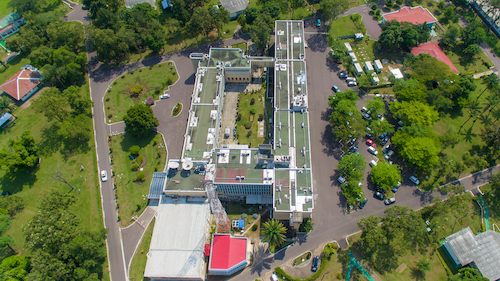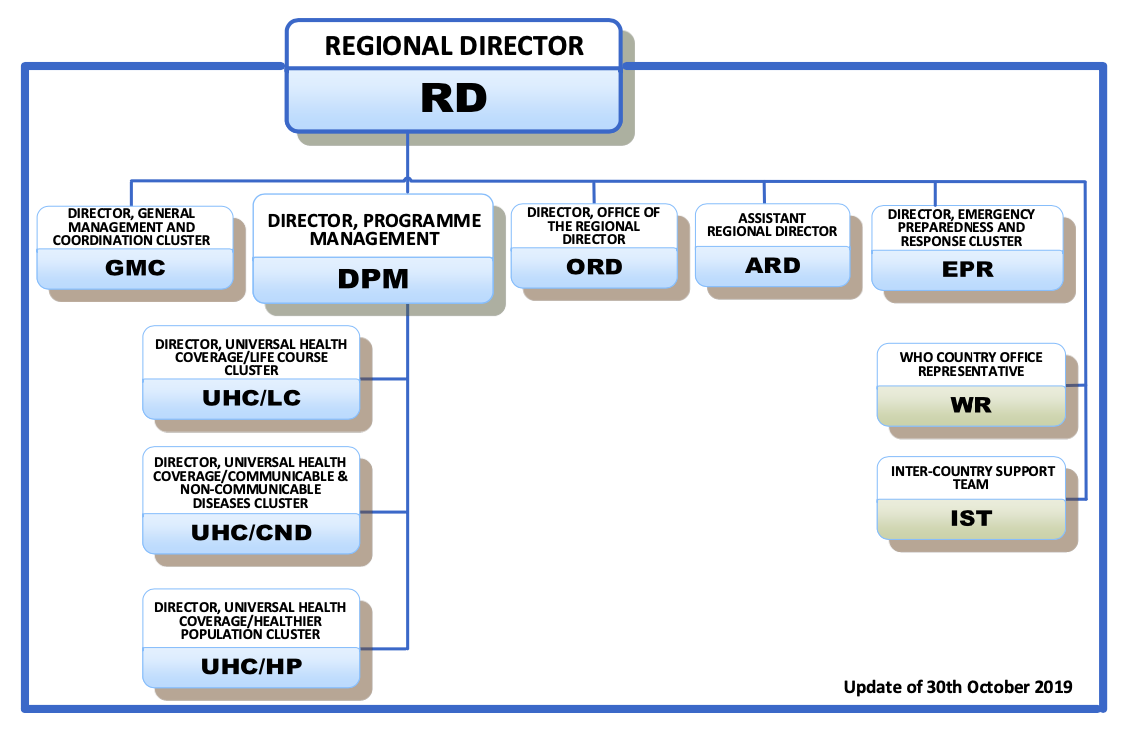Organizational structure
Inter-Country Support Teams
Inter-Country Support Teams
The operations of the Regional Office are decentralized through three Inter-country Support Teams (ISTs) based in Harare, Libreville and Ouagadougou. Composed of a multidisciplinary staff, the mission of the ISTs is to:
- enhance AFRO's technical support to countries for scaling up proven public health interventions; and
- strengthen partnerships with UN agencies, regional economic communities and other stakeholders.
The IST for Central Africa covers 10 countries: Angola, Burundi, Cameroon, Central African Republic, Chad, Republic of Congo, Democratic Republic of the Congo, Equatorial Guinea, Gabon, and Sao Tome and Principe.
The IST for Eastern and Southern Africa covers 20 countries: Botswana, Comoros, Eritrea, Ethiopia, Kenya, Lesotho, Madagascar, Malawi, Mauritius, Mozambique, Namibia, Rwanda, South Africa, Seychelles, South Sudan, Swaziland, Tanzania, Uganda, Zambia and Zimbabwe.
The IST for West Africa covers 17 countries: Algeria, Benin, Burkina Faso, Cape Verde, Cote d'Ivoire, Gambia, Ghana, Guinea, Guinea Bissau, Liberia, Mali, Mauritania, Niger, Nigeria, Senegal, Sierra Leone, and Togo
WHO Regional Office
WHO Regional Office
 The WHO Regional Office for Africa is located in Brazzaville, Republic of Congo. The Regional Office is headed by the WHO Regional Director for Africa, who is elected for a period of five years by the delegates from African Member States during the Regional Committee and endorsed by the WHO Executive Board.
The WHO Regional Office for Africa is located in Brazzaville, Republic of Congo. The Regional Office is headed by the WHO Regional Director for Africa, who is elected for a period of five years by the delegates from African Member States during the Regional Committee and endorsed by the WHO Executive Board.
WHO Country & Liaison Offices
WHO Country & Liaison Offices
WHO places priority in supporting countries to improve the health of people. With offices in each of the 47-Member States, WHO supports countries to improve health outcomes through technical cooperation, policy dialogue and advice, developing norms and standards, generating and sharing knowledge, and convening health partners. Each WHO office is headed by a WHO Representative, who oversees the implementation of a country cooperation strategy (CCS). This is a medium-term vision for WHO's technical cooperation with a given Member State, and supports the country's national health policy, strategy or plan.
Organizational Chart
For smooth and efficient implementation of the Organization's programme and budget, the WHO Regional Director for Africa decides on an appropriate organizational structure and functioning for the Secretariat in the region. The Secretariat comprises three levels: the Regional Office, Inter-country Support Teams and WHO Country Offices and Liaison Offices.



